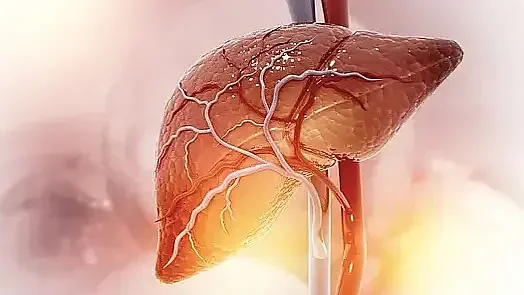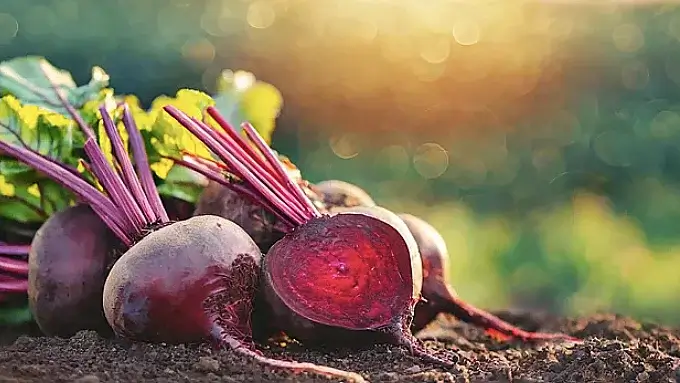How Antioxidants Protect the Liver From Oxidative Stress

A Steady Defense in Every Day’s Meal
There’s a moment every doctor remembers — the patient’s eyes widen as they connect their diet to liver health. One patient, still clutching their lunch from a health-food store, asked if leafy greens really could defend their liver. My answer wasn’t just about greens but rather about the powerful effect antioxidants can have on protecting liver cells from the daily wear and tear of oxidative stress, especially crucial for anyone dealing with fatty liver disease. So, how exactly do antioxidants help our liver endure this daily barrage?
Understanding Oxidative Stress and the Liver
Oxidative stress occurs when the body’s balance between free radicals and antioxidants shifts, resulting in cellular and tissue damage. The liver, our body’s primary filter, is highly susceptible to oxidative stress as it constantly processes toxins and metabolizes fats, alcohol, and medications. When oxidative damage builds up, it can lead to inflammation, worsen fatty liver disease, and potentially progress to more severe liver issues.
Antioxidants are vital because they neutralize free radicals before these unstable molecules can harm cells. For those with fatty liver, oxidative stress is a significant concern, and antioxidants play a crucial role in offsetting it. Hence, understanding how antioxidants protect the liver from oxidative stress becomes essential for preventive liver care and management.
A Natural Shield: How Antioxidants Work
Antioxidants are compounds that stabilize free radicals, preventing them from damaging liver cells. They can be found in a variety of foods, especially in fruits, vegetables, and certain nuts and seeds. Common dietary antioxidants include vitamins C and E, selenium, and various plant-based compounds, each offering unique mechanisms for liver protection.
Once ingested, antioxidants seek out free radicals, donating an electron to stabilize them. This process curtails oxidative stress, thereby reducing the risk of cellular damage. But antioxidants don’t work in isolation; their protection is magnified when consumed regularly as part of a balanced diet, especially one rich in fruits and vegetables. In this way, antioxidants provide a natural buffer, reducing the burden on the liver to handle oxidative stress alone.
How Antioxidants Protect the Liver From Oxidative Stress
Free radical activity can be accelerated by factors like poor diet, alcohol consumption, and exposure to environmental toxins, all of which place extra pressure on the liver. In the context of fatty liver, where fat accumulates in liver cells, oxidative stress exacerbates cellular strain and inflammation. This is where antioxidants come into play. Studies reveal that how antioxidants protect the liver from oxidative stress goes beyond merely fighting free radicals; they also have a regenerative effect on damaged liver cells, fostering cellular repair.
One compelling example is the antioxidant glutathione, a naturally occurring compound in the liver. When the liver’s glutathione levels are high, it functions more efficiently in detoxifying harmful substances. Unfortunately, factors like fatty liver disease can deplete glutathione reserves, which makes supplementing with glutathione-rich foods (such as spinach, avocados, and asparagus) or supplements essential in certain cases.
Can a Diet High in Antioxidants Reverse Fatty Liver?
A diet that’s high in antioxidants may not reverse fatty liver entirely, but it can indeed help halt or slow disease progression. By lessening oxidative damage, antioxidants can improve liver cell health and reduce inflammation, leading to better liver function overall. This approach is especially effective when combined with other healthy lifestyle habits, such as regular exercise and reduced alcohol intake. Although the effects are gradual, over time, individuals with fatty liver often see improved liver markers with antioxidant-rich diets.
Key Antioxidants for Liver Health
- Vitamin E – Known for its robust anti-inflammatory properties, vitamin E has been shown to improve liver function in patients with non-alcoholic fatty liver disease (NAFLD).
- Vitamin C – This essential antioxidant supports the immune system and assists in cellular repair, providing additional defense against oxidative stress.
- Selenium – A trace mineral that enhances antioxidant activity within the liver. Selenium is found in foods like Brazil nuts, sunflower seeds, and fish.
- Polyphenols – Found in berries, grapes, and green tea, polyphenols are plant-based antioxidants that have shown potential in reducing liver fat accumulation.
- Curcumin – Derived from turmeric, curcumin possesses potent anti-inflammatory effects and may aid in liver cell repair.
Embracing a Liver-Friendly, Antioxidant-Rich Diet
When it comes to addressing oxidative stress, not all antioxidants are created equal. Some, like polyphenols in tea or flavonoids in berries, offer particularly strong protection to the liver. The challenge lies in consistently incorporating these into our daily meals. A liver-friendly diet is best when it includes a rainbow of fruits, vegetables, and whole grains, providing a balanced source of the antioxidants needed to combat oxidative damage.
Integrating antioxidant-rich foods doesn’t require drastic dietary overhauls but instead can begin with simple, incremental changes. Swapping out processed snacks for antioxidant-dense fruits or choosing green tea over sugary drinks can be effective, manageable ways to support liver health and reduce oxidative damage.
Antioxidant Supplements: Are They Necessary?
In some cases, especially for individuals with more advanced stages of fatty liver, supplements might be considered to boost antioxidant intake. While diet should always be the primary source of nutrients, supplements like vitamin E or glutathione may be beneficial for those unable to meet their needs through food alone. However, it’s critical to consult a healthcare provider before starting any supplement regimen, as excessive doses of certain antioxidants, like vitamin E, can lead to adverse effects.
Conclusion: Building a Liver-Protective Lifestyle
Understanding how antioxidants protect the liver from oxidative stress allows us to see the liver as a dynamic organ that benefits immensely from targeted nutritional support. For those facing fatty liver disease, adopting an antioxidant-rich diet can be a proactive step towards liver health. Over time, these choices may lessen the impact of oxidative stress, slow disease progression, and enhance overall liver resilience. With every meal, there’s an opportunity to strengthen this vital organ—proving that small dietary choices can indeed foster big health benefits.
Research on Amino Acids and Liver Health
Research continues to explore the relationship between amino acids and liver health, particularly how amino acids can influence fat metabolism, inflammation, and cell regeneration. Findings suggest that amino acids can help slow fatty liver disease progression by supporting fat breakdown and reducing inflammation.
Final Thoughts
In summary, the role of amino acids in fatty liver health is multifaceted. Amino acids not only aid in fat metabolism but also support liver repair and limit oxidative stress. While supplements can be helpful, a balanced diet rich in amino acids is preferable. Consult a healthcare provider before adding any new supplements to your regimen, as overconsumption or imbalances could counteract the benefits.
Share this article

Dr. Irene Paragas, MD
I am a Medical Doctor, Registered Nutritionist-Dietitian, and seasoned virtual professional. See Full Bio.
-
1. Dinkova-Kostova AT, Talalay P. Direct and indirect antioxidant properties of inducers of cytoprotective proteins, 2008. [DOI]
-
2. Talalay, P., Batzinger, R. P., Benson, A. M., Bueding, E., Cha, Y. N., Biochemical studies on the mechanisms by which dietary antioxidants suppress mutagenic activity, Adv. Enzyme Regul. 1978.
-
3. Baez, S., Segura-Aguilar, J., Widersten, M., Johansson, A. S., Mannervik, B., Glutathione transferases catalyse the detoxication of oxidized metabolites (o-quinones) of catecholamines and may serve as an antioxidant system preventing degenerative cellular processes, 1997.
-
4. Meister, A., Glutathione-ascorbic acid antioxidant system in animals, 1994.
-
5. Hintze, K. J., Wald, K. A., Zeng, H., Jeffery, E. H., Finley, J. W., Thioredoxin reductase in human hepatoma cells is transcriptionally regulated by sulforaphane and other electrophiles via an antioxidant response element, 2003.
-
6. Scapagnini, G., Colombrita, C., Amadio, M., D'Agata, V. et al., Curcumin activates defensive genes and protects neurons against oxidative stress, 2006.
The Role of Amino Acids in Fatty Liver Health During a recent shift, I met a patient curious about his new “amino acid blend” supplement, eager to...
Can a Low-Carb Diet Reverse Fatty Liver? I had a patient who would roll his eyes at the mention of diet. When his liver enzymes came back alarmingly...
Is the Paleo Diet Effective for Fatty Liver? I once had a patient who came in, eyes wide with hope, saying, “Doc, I’m thinking of going Paleo—will it...

You might enjoy more articles by
Dr. Irene Paragas, MD
 Disease
Disease Diets
Diets Recipes
Recipes Supplements
Supplements Management
Management Calculators
Calculators Quizzes
Quizzes Glossary
Glossary
























